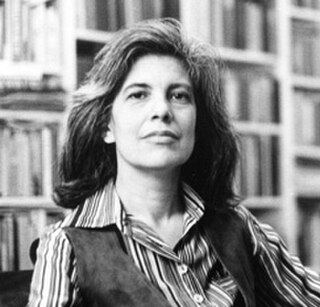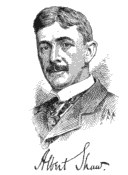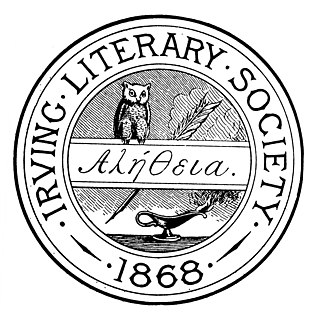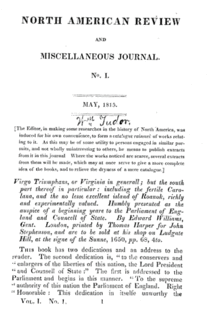Related Research Articles

Elwyn Brooks White was an American writer. He was the author of several highly popular books for children, including Stuart Little (1945), Charlotte's Web (1952), and The Trumpet of the Swan (1970). In a 2012 survey of School Library Journal readers, Charlotte's Web came in first in their poll of the top one hundred children's novels. In addition, he was a writer and contributing editor to The New Yorker magazine, and also a co-author of the English language style guide The Elements of Style.

Susan Sontag was an American writer, filmmaker, philosopher, teacher, and political activist. She mostly wrote essays, but also published novels; she published her first major work, the essay "Notes on 'Camp'", in 1964. Her best-known works include the critical works Against Interpretation (1966), Styles of Radical Will (1968), On Photography (1977), and Illness as Metaphor (1978), as well as the fictional works The Way We Live Now (1986), The Volcano Lover (1992), and In America (1999).
The New York Review of Books is a semi-monthly magazine with articles on literature, culture, economics, science and current affairs. Published in New York City, it is inspired by the idea that the discussion of important books is an indispensable literary activity. Esquire called it "the premier literary-intellectual magazine in the English language." In 1970 writer Tom Wolfe described it as "the chief theoretical organ of Radical Chic".

Irving Howe was an American literary and social critic and a prominent figure of the Democratic Socialists of America.
Gertrude Himmelfarb, also known as Bea Kristol, was an American historian. She was a leader of conservative interpretations of history and historiography. She wrote extensively on intellectual history, with a focus on Great Britain and the Victorian era, as well as on contemporary society and culture.
Susan Brownmiller is an American feminist journalist, author, and activist best known for her 1975 book Against Our Will: Men, Women, and Rape.

Walter Fredrick LaFeber was an American academic who served as the Andrew H. and James S. Tisch Distinguished University Professor in the Department of History at Cornell University. Previous to that he served as the Marie Underhill Noll Professor of History and a Stephen H. Weiss Presidential Fellow at Cornell.
Alfred Kazin was an American writer and literary critic. He wrote often about the immigrant experience in early twentieth century America.
Carl Lotus Becker was an American historian.
The Claremont Review of Books (CRB) is a quarterly review of politics and statesmanship published by the conservative Claremont Institute. A typical issue consists of several book reviews and a selection of essays on topics of conservatism and political philosophy, history, and literature. Authors who are regularly featured in the Review are sometimes referred to as "Claremonsters."

Francis Whiting Halsey was an American journalist, editor and historian, born in Unadilla, New York. He was the son of Dr. Gaius Leonard Halsey, a Civil War surgeon, and Juliet (Cartington) Halsey. He was the grandson of Dr. Gaius and Mary (Church) Halsey of Kortright, New York, and a descendant of Thomas Halsey, who emigrated from England before 1640 and helped to found the settlement of Southampton, Long Island, one of the earliest English settlements in New York.
Dwight Macdonald was an American writer, editor, film critic, social critic, philosopher, and activist. Macdonald was a member of the New York Intellectuals and editor of their leftist magazine Partisan Review for six years. He also contributed to other New York publications including Time, The New Yorker, The New York Review of Books, and politics, a journal which he founded in 1944.

William Herberg was an American writer, intellectual and scholar. A communist political activist during his early years, Herberg gained wider public recognition as a social philosopher and sociologist of religion, as well as a Jewish theologian. He was a leading conservative thinker during 1950s and an important contributor to the National Review magazine.
Alvin Saunders Johnson was an American economist and a co-founder and first director of The New School.

n+1 is a New York–based American literary magazine that publishes social criticism, political commentary, essays, art, poetry, book reviews, and short fiction. It is published three times each year, and content is published on its website several times each week. Each print issue averages around 200 pages in length.
Samuel Moyn is the Henry R. Luce Professor of Jurisprudence at Yale Law School and Professor of History at Yale University, which he joined in July 2017. Previously, he was a professor of history at Columbia University for thirteen years and a professor of history and of law at Harvard University for three years. His research interests are in modern European intellectual history, with special interests in France and Germany, political and legal thought, historical and critical theory, and sometimes Jewish studies.

Albert Shaw was an American journalist and academic.

The Irving Literary Society was a literary society at Cornell University active from 1868 to 1887. The U.S. Bureau of Education described it as a "purely literary society" following the "traditions of the old literary societies of Eastern universities." During the period when the Cornell literary societies flourished, the Irving and its peers produced literature at a rate higher than the campus average for the next generation, leading commentators at the turn of the 20th century to question whether academic standards had fallen since the university's founding. Named after the American writer Washington Irving, the Irving Literary Society was founded on October 20, 1868, shortly after Cornell opened. Past members who went on to prominent careers included Judge Morris Lyon Buchwalter, Senator Joseph Benson Foraker, and the journalists John Andrew Rea and Francis Whiting Halsey. The Irving's last public meeting was held on May 23, 1887. After that it ceased to exist as a Cornell University student society. However, the New York Alpha Chapter of the Phi Kappa Psi undergraduate fraternity at Cornell claims to have "served as steward of the Irving Literary Society since 1888".

North American Review (NAR) was the first literary magazine in the United States. It was founded in Boston in 1815 by journalist Nathan Hale and others. It was published continuously until 1940, after which it was inactive until revived at Cornell College in Iowa under Robert Dana in 1964. Since 1968, the University of Northern Iowa in Cedar Falls has been home to the publication. Nineteenth-century archives are freely available via Cornell University's Making of America.
Borisz de Balla, also known as Borisz Balla de Iregh, was a Hungarian journalist, historian, diplomat, novelist, and educator who taught in the United States after World War II.